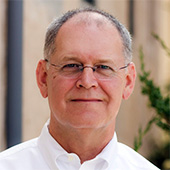Documents obtained by the Center for Media and Democracy, recently unsealed as part of a major lawsuit against Syngenta, reveal that the global chemical company's PR team had a multi-million dollar budget to pay surrogates and others who helped advance its messages about the weed-killer "atrazine." This story is part two of a series about Syngenta's PR campaign to influence the media, potential jurors, potential plaintiffs, farmers, politicians, scientists, and the U.S. Environmental Protection Agency (EPA) in the midst of reviews of the weed-killer's potential to act as an endocrine disruptor.
 These documents reveal a string of money going from Syngenta to pundits, economists, scientists, and others. Below is a sample of some of the "third party" surrogates who have been financially supported by Syngenta.
These documents reveal a string of money going from Syngenta to pundits, economists, scientists, and others. Below is a sample of some of the "third party" surrogates who have been financially supported by Syngenta.
ACSH's Elizabeth Whelan: "A Great Weapon"
Elizabeth Whelan is founder and President of the American Council on Science and Health (ACSH). ACSH is a network of scientists whose stated mission to "ensure that the coverage of health issues is based on scientific facts – not hyperbole, emotion and ideology." Whelan has used hyperbole to advance her agenda, for example, calling the New York Times reporting on atrazine "All the news that's fit to scare."
Some of ACSH's published materials have a disclaimer saying it accepts corporate donations but it "does not accept support from individual corporations for specific research projects." Documents obtained by CMD show (PDF) that Syngenta has been a long-term financial supporter of ACSH and that in the midst of reports about spikes in atrazine levels reported by the New York Times, the Natural Resources Defense Council, and the Huffington Post Investigative Fund, ACSH sought an additional $100,000 to produce more materials about atrazine in addition to seeking increased funding in general by Syngenta.
 The candidacy of Mitt Romney for President of the United States has drawn scrutiny to the practices of the "private equity" industry. Tired of being bashed as greedy "vulture capitalists," the industry has launched an effort to polish its image.
The candidacy of Mitt Romney for President of the United States has drawn scrutiny to the practices of the "private equity" industry. Tired of being bashed as greedy "vulture capitalists," the industry has launched an effort to polish its image.
 A bill moving through the Wisconsin Legislature would make it more difficult to track and accurately tabulate campaign donations from businesses and industries in state elections. Critics say it could also hinder investigations of illegal campaign fundraising like the one that resulted in the conviction of a Wisconsin railroad executive last year and others that could be part of the current "John Doe" investigation into Governor Scott Walker's staff.
A bill moving through the Wisconsin Legislature would make it more difficult to track and accurately tabulate campaign donations from businesses and industries in state elections. Critics say it could also hinder investigations of illegal campaign fundraising like the one that resulted in the conviction of a Wisconsin railroad executive last year and others that could be part of the current "John Doe" investigation into Governor Scott Walker's staff. MONTPELIER, Vermont — You can't see them. They're hidden from view and probably always will be. But the health insurance industry's big guns are in place and pointed directly at the citizens of Vermont.
MONTPELIER, Vermont — You can't see them. They're hidden from view and probably always will be. But the health insurance industry's big guns are in place and pointed directly at the citizens of Vermont. These documents reveal a string of money going from Syngenta to pundits, economists, scientists, and others. Below is a sample of some of the "third party" surrogates who have been financially supported by Syngenta.
These documents reveal a string of money going from Syngenta to pundits, economists, scientists, and others. Below is a sample of some of the "third party" surrogates who have been financially supported by Syngenta. Little is known about the agenda of the ALEC education meeting taking place at the Ritz Carlton on Amelia Island. The meeting is not open to the public and recently even
Little is known about the agenda of the ALEC education meeting taking place at the Ritz Carlton on Amelia Island. The meeting is not open to the public and recently even